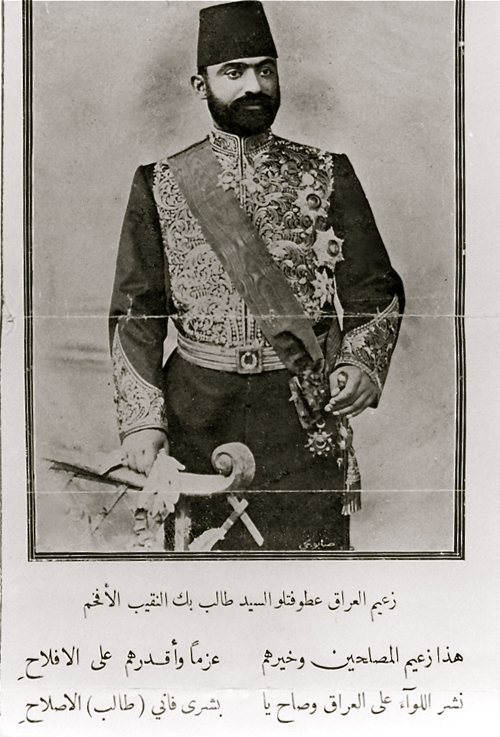 |
The Al-Naqeeb family lived in Iraq under Ottoman rule, where they played an influential role politically, socially and economically. One particular family member, Sayed Taleb Al-Naqeeb (Khaldoun’s grandfather, pictured) played a crucial role. After the fall of the Ottoman Empire in WWI, the people wanted Sayed Taleb to rule the vicinity, but the British had other plans. After the Ottomans fell, the British wanted to seize control of the area and saw Sayed Taleb as a threat. Consequently, in 1921, he and his immediate family were exiled to India, whereas the rest of the Al-Naqeebs remained in Iraq, where their land, property and livelihood was. But this was not to be. The people of Iraq resented the puppet Monarch of the British and revolted against this imperialist authority. As the conditions became more unstable, the Al-Naqeebs thought it best to move back to their original homeland, Kuwait.
|